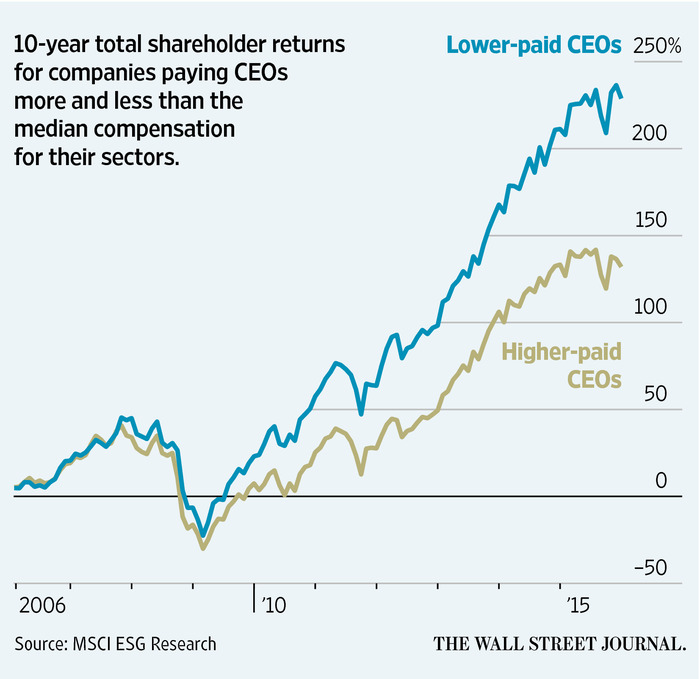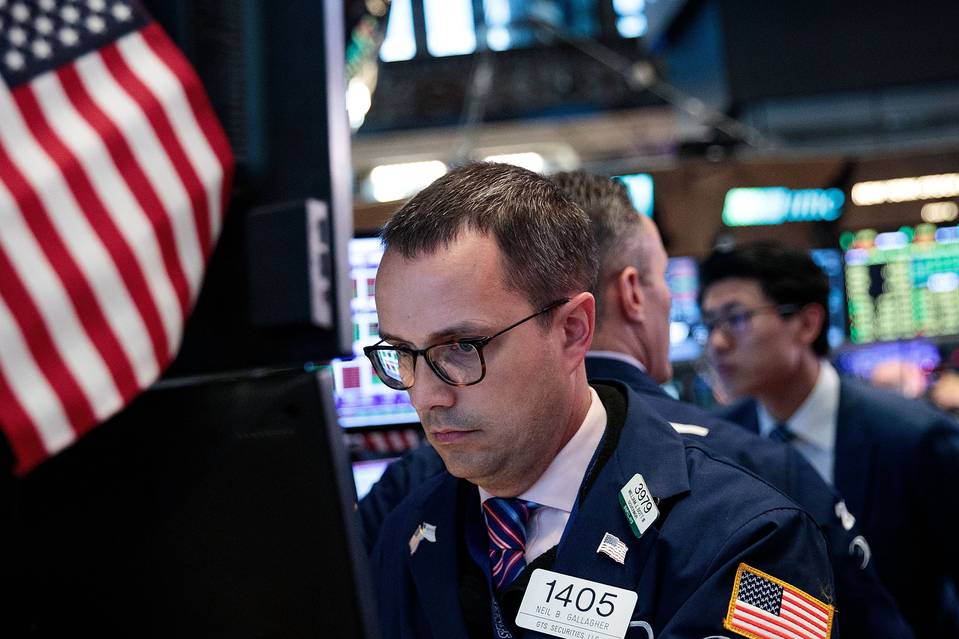Best-Paid CEOs Run Some of Worst-Performing Companies
The best-paid CEOs tend to run some of the worst-performing companies and vice versa—even when pay and performance are measured over the course of many years, according to a new study.
The analysis, from corporate-governance research firm MSCI, examined the pay of some 800 CEOs at 429 large and midsize U.S. companies during the decade ending in 2014, and also looked at the total shareholder return of the companies during the same period.
MSCI found that $100 invested in the 20% of companies with the highest-paid CEOs would have grown to $265 over 10 years. The same amount invested in the companies with the lowest-paid CEOs would have grown to $367. The report is expected to be released as early as Monday.
The results call into question a fundamental tenet of modern CEO pay: the idea that significant slugs of stock options or restricted stock, especially when the size of the award is also tied to company performance in other ways, helps drive better company performance, which in turn will improve results for shareholders. Equity incentive awards now make up 70% of CEO pay in the U.S.
Source: Best-Paid CEOs Run Some of Worst-Performing Companies – WSJ
Stock Pickers’ Very Bad Year
After taking some big hits, active managers may be about to give some licks back.
Beating the market has always been hard for the pros. Lately it has been even harder. In the decade that ended in 2015, an average of just 37% of large-cap mutual funds outperformed the Russell 1000 in any given year, according to Bank of America Merrill Lynch. In the first seven months of this year, only 14% outpaced the benchmark.
Costs are part of it, but there are other problems. The number of Americans who own individual stocks has steadily declined since the 1990s, leaving fund managers with fewer patsies at the poker table to take chips away from. The crush of cash entering index funds has made stock selection less effective.


